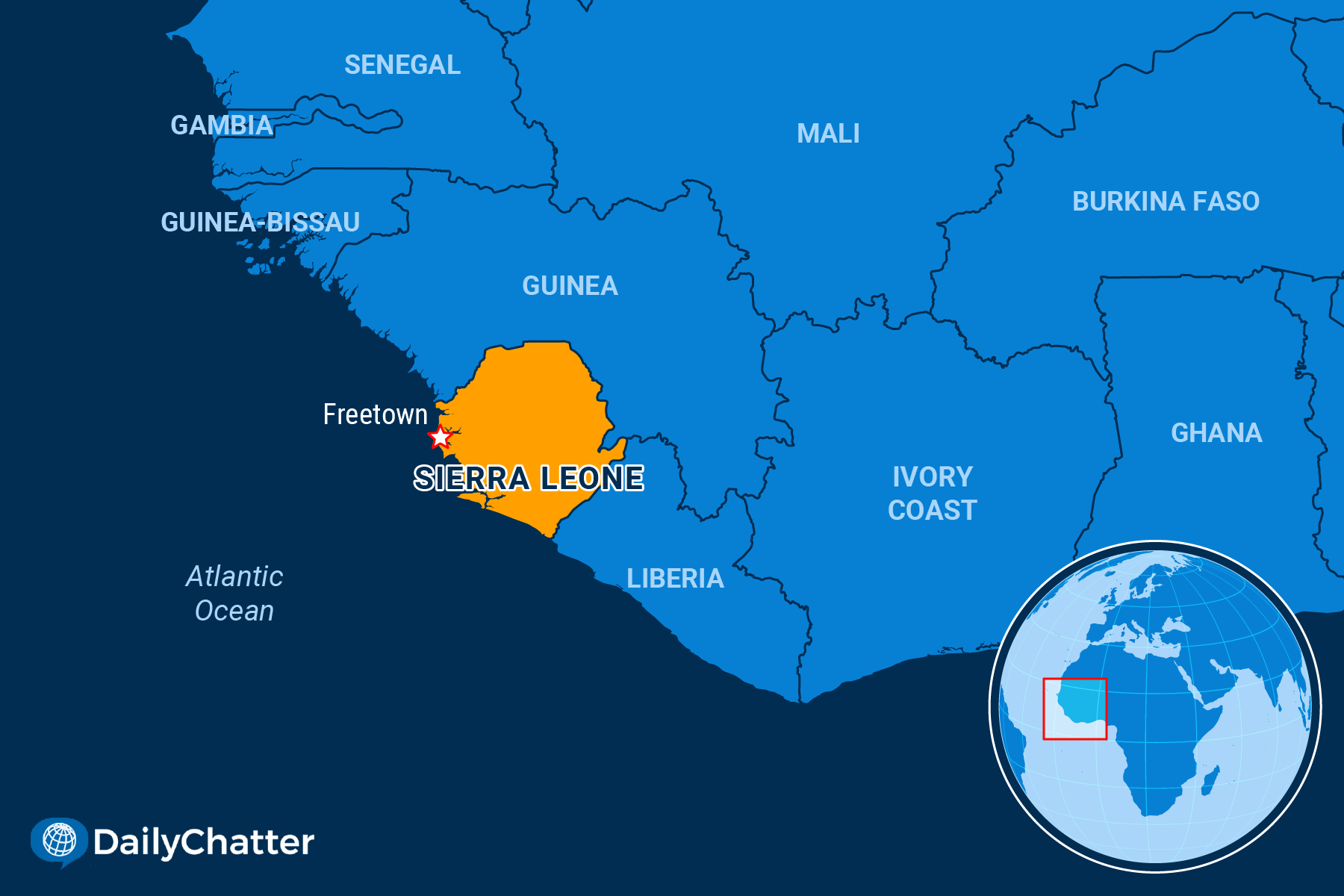
The World Today for December 23, 2021
NEED TO KNOW
The Propulsion of Desperation
SIERRA LEONE

When Alhaji Siraj Bah’s adopted family perished along with more than 1,400 people in Sierra Leone in 2017 in mudslides, he vowed to take action. “All I felt was helpless,” Bah, now 22, told the Washington Post. “So, I put my attention into finding ways to help.”
He fulfilled his dream with the help of coconuts. Bah now runs Rugsal Trading, a company that uses coconut shells and husks to make briquettes that are a substitute for charcoal produced by loggers who cut down the trees that prevent mudslides. He’s made 100 tons of the briquettes. Studies have found that one ton spares as many as 88 trees.
The West African country lost nearly a third of its forests between 2001 and 2015, Global Forest Watch found. As CNN explained, poor infrastructure and drainage and a lack of waste removal also exacerbate flooding. The combination means deadly mudslides are all too frequent.
Park rangers pursue loggers who illegally cut down the country’s trees and destroy flora and fauna but market demand fuels the industry, noted the Global Climate Change Alliance Plus Initiative. Demand for charcoal, moreover, is rising. By 2030, more than two billion people in Africa will still be using charcoal and other biomass for their cooking and heating needs, added the United Nations Food and Agriculture Organization.
[holidaypromo]
President Julius Maada Bio has pledged to plant trees to restore forests and install solar panels so that his people have alternatives to charcoal. But his poor country needs more funding to address the problem adequately, the Sierra Leone Telegraph reported. Only around a quarter of the country has access to electricity. In rural areas, only six percent have access. The country’s grid dates to the 1960s, before the civil war in the 1990s destroyed much of the country.
As Bah and others illustrate, the country’s private sector is stepping up to help.
Jeremiah Thoronka, 20, for example, grew up experiencing frequent electricity shortages. His family depended on charcoal to heat and light their home. As the BBC wrote, Thoronka invented a “piezoelectric device” that, when placed under a road or walkway, converts kinetic energy from passing cars and pedestrians into electricity without emissions. The device is more reliable than solar or wind power because people serve as the energy source, often unwittingly.
Another twenty-something entrepreneur, Emmanuel Alieu Mansaray, created a solar-powered “imagination car” out of trash and detritus that he assembled in the capital of Freetown. The vehicle travels around only 10 miles an hour but has drawn attention to air pollution, according to Euronews.
It’s popular in Palo Alto and elsewhere to believe that investment fuels innovation. But sometimes, in some places, it’s desperation and hope propelling ingenuity.
To read the full edition and support independent journalism, join our community of informed readers and subscribe today!
Not already a subscriber?
If you would like to receive DailyChatter directly to your inbox each morning, subscribe below with a free two-week trial.
Support journalism that’s independent, non-partisan, and fair.
If you are a student or faculty with a valid school email, you can sign up for a FREE student subscription or faculty subscription.
Questions? Write to us at [email protected].
